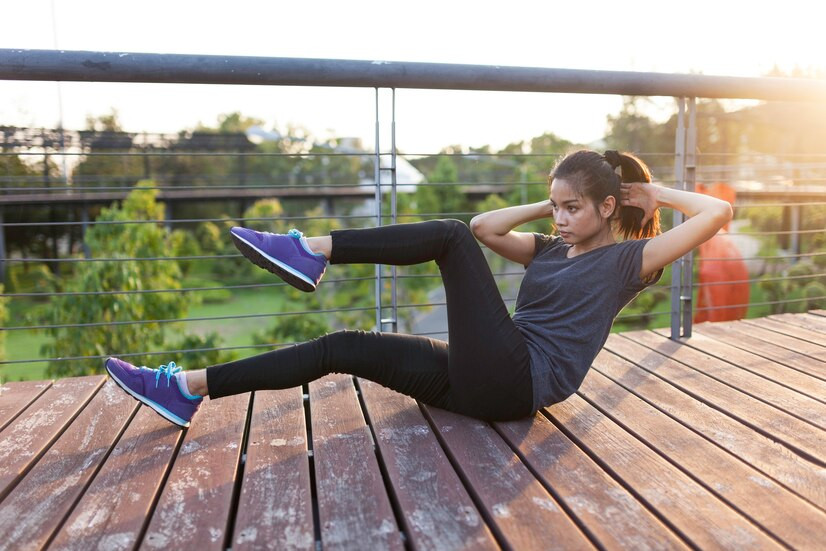Many people choose to exercise in hot weather, believing that sweating more leads to greater calorie burn. Those aiming to lose weight often prefer outdoor workouts under the sun, hoping that the heat will accelerate their fitness goals.
But does exercising in hot weather actually help burn more calories? And is it safe? Find out in the following article.
Benefits of Exercising in Hot Weather
Exercising in high temperatures offers several benefits, one of which is increased calorie burn. During physical activity, body temperature rises to match the intensity of movement. To prevent overheating, the body releases heat by sweating.
When you work out in hot conditions, the body produces more sweat to regulate its temperature. While this leads to temporary weight loss, most of the lost weight comes from water, not fat.
However, if you frequently train in hot conditions, the body eventually adapts, requiring less energy and fewer calories to cool itself down.
Other benefits of exercising in hot weather include:
- Enhancing cardiovascular endurance and stamina
- Improving flexibility
- Strengthening mental resilience
- Boosting vitamin D production through sun exposure
Risks of Exercising in Hot Weather
While exercising in hot weather can help improve stamina and aid in weight loss, it also poses several health risks, including:
Heat Exhaustion
Heat exhaustion occurs when prolonged exposure to high temperatures causes extreme fatigue. Symptoms may include excessive sweating, rapid heartbeat, dizziness, and headaches. If left untreated, heat exhaustion can escalate into heatstroke, which can be life-threatening.
Heatstroke
Heatstroke happens when body temperature rises to 40º Celsius or higher, often due to prolonged activity in extreme heat. It is the most severe form of heat-related illness and can be fatal if not treated immediately.
Symptoms of heatstroke include:
- Confusion
- Slurred speech
- Irritability
- Delirium
- Changes in sweating patterns
- Nausea and vomiting
- Flushed skin
- Rapid breathing and heart rate
- Headache
Dehydration
Dehydration occurs when the body loses more fluids than it takes in, leading to an imbalance that affects normal bodily functions. Without adequate hydration, dehydration can result in severe complications such as seizures, kidney issues, and shock.
Safe Tips for Exercising in Hot Weather
To minimize dehydration and heat-related injuries while exercising outdoors in hot conditions, follow these safety tips:
- Apply sunscreen with an SPF of at least 30 to protect your skin from UV damage.
- Wear protective gear, such as a hat, sunglasses, and long-sleeved clothing to shield yourself from the sun.
- Begin with low-intensity movements and gradually increase exercise intensity.
- Hydrate regularly by drinking water before, during, and after exercise—don't wait until you're thirsty.
- Opt for loose, lightweight, and light-colored clothing to help keep your body cool.
Exercising in hot weather can increase calorie burn, potentially accelerating weight loss. However, it is essential to take precautions to prevent dehydration and heat-related complications. If you plan to work out in high temperatures, consider following these safety tips or consulting with a doctor or fitness professional. You can also seek guidance through the Ai Care application, available for download on the App Store or Play Store.
Looking for more information about health tips and tricks, first aid, and other home remedies? Click here!
- dr Hanifa Rahma
Davidson, K. (2021). Do You Burn More Calories in the Heat? Here's the Science. Available from: https://www.healthline.com/health/fitness/do-you-burn-more-calories-in-the-heat#
Ellis, E. (2024). Exercise Safely in Hot Weather. Available from: https://www.eatright.org/fitness/physical-activity/exercise-nutrition/exercise-safely-in-hot-weather
NHS. Heat exhaustion and heatstroke. Available from: https://www.nhs.uk/conditions/heat-exhaustion-heatstroke/
CDC. Heat and Athletes. Available from: https://www.cdc.gov/heat-health/risk-factors/heat-and-athletes.html#












